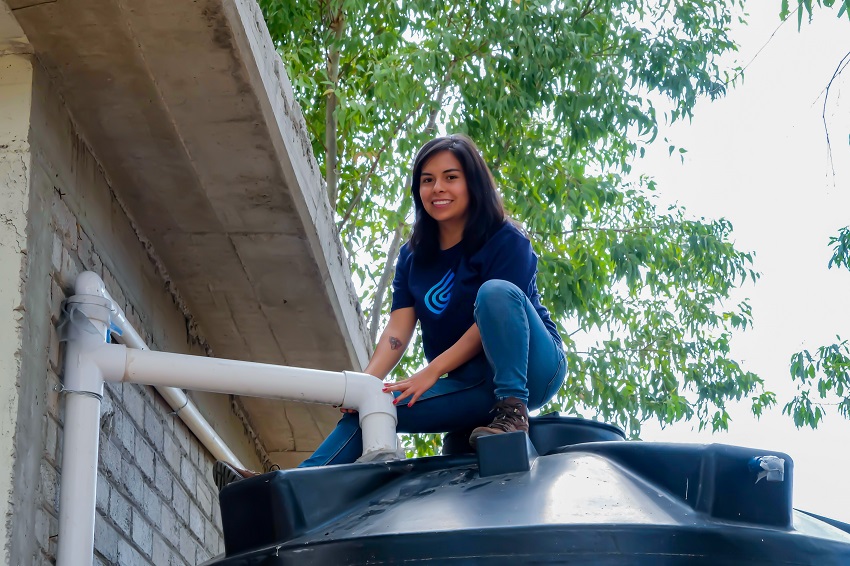By Jenny Cook
As a student of environmental sciences at the National Autonomous University of Mexico, also known as the UNAM, Karina Bautista learned that we cannot count on government or existing legislation if we want to protect the environment.
Karina saw how the same authorities responsible for protecting the environment, set fire to wetlands protected under the Ramsar Convention, thus further poisoning the water of residents living on the shores of Lake Cuitzeo in Michoacán.
For her thesis, she explored the severe water contamination by a major U.S. paper products company and its effects on residents and wildlife in the Lago de Cuitzeo reserve. Karina monitored water quality along the lake’s shoreline where the company would usually discharge its waste. With her degree, Karina realized she prefers working directly with communities whose health is threatened or already being affected by contaminated water.
It was through an UNAM professor that Karina first heard of Caminos de Agua and learned that for the last ten years the organization has been promoting rain-water catchment as a solution for communities in the northern part of the state of Guanajuato, while also monitoring water quality and developing low-cost technologies to remove arsenic, fluoride, and other common contaminants from water.
Thanks to a grant from the Unitarian Universalist Fellowship of San Miguel, Karina became an intern at Caminos. She has been instrumental in creating links with residents from rural communities, especially with mothers concerned for their children’s health, many of whom already suffer the effects of dental fluorosis. Karina explains how she found new forms of connecting with residents, “The first step is to identify the problems and find solutions together. There was already a manual that the Caminos’ volunteers were using, but I revised it to include ways to better approach people and encourage even more participation.”
Describing mothers from the Salitrillo community, Karina says, “They were quite timid, but as we started to get to know them, they began to open up and share their personal stories. In one workshop, we all walked together to the water’s edge and heard of their days as children growing up along its shores and how the water’s depth has been decreasing continuously since then.”
This fall, Karina will attend Colegio de la Frontera Norte in Monterrey and work on a master’s program that integrates various aspects of water management. She is grateful for her time at Caminos, which opened a door into the real-world problems of water scarcity and contamination.
Recently the Fundación Gonzalo Río Arronte, which finances social projects related to water, approved a grant to build 300 rainwater catchment systems during the next three years. For this reason, Caminos de Agua needs more interns like Karina, as well as engineers and experts in programming and communications. In return, it offers a valuable work experience that will hopefully motivate interns to continue working on water issues and solutions.
For information on how you can fund an intern, send email with “Intern Program” in the subject line to info@caminosdeagua.org.

